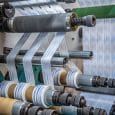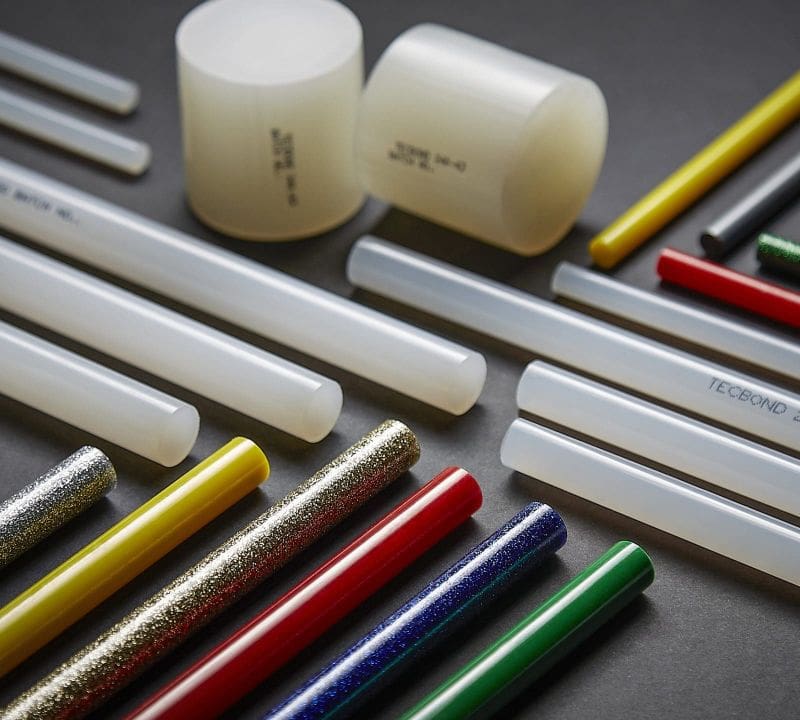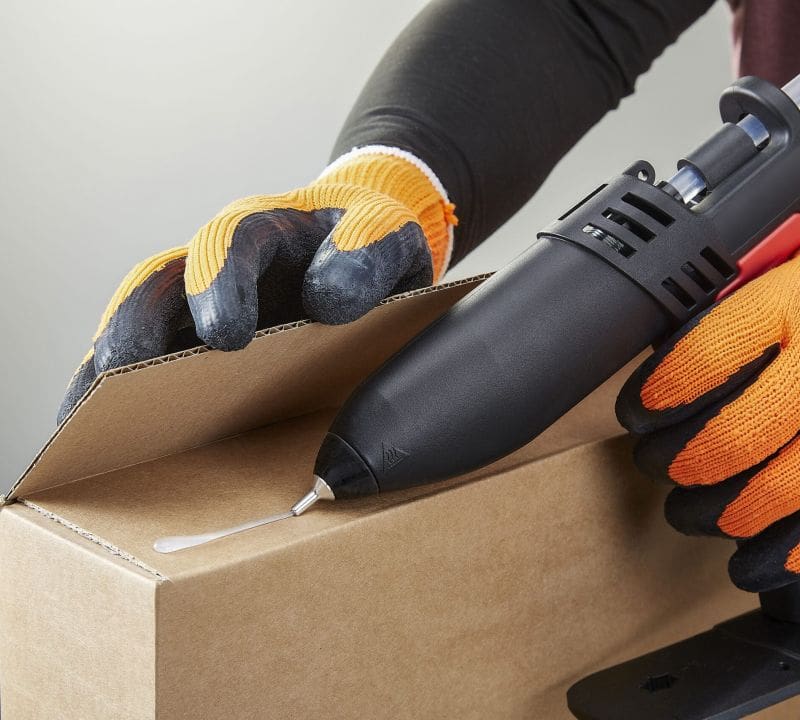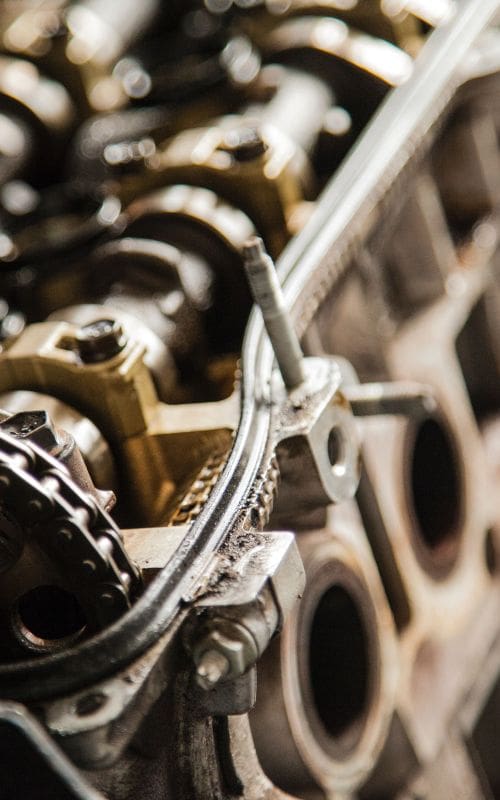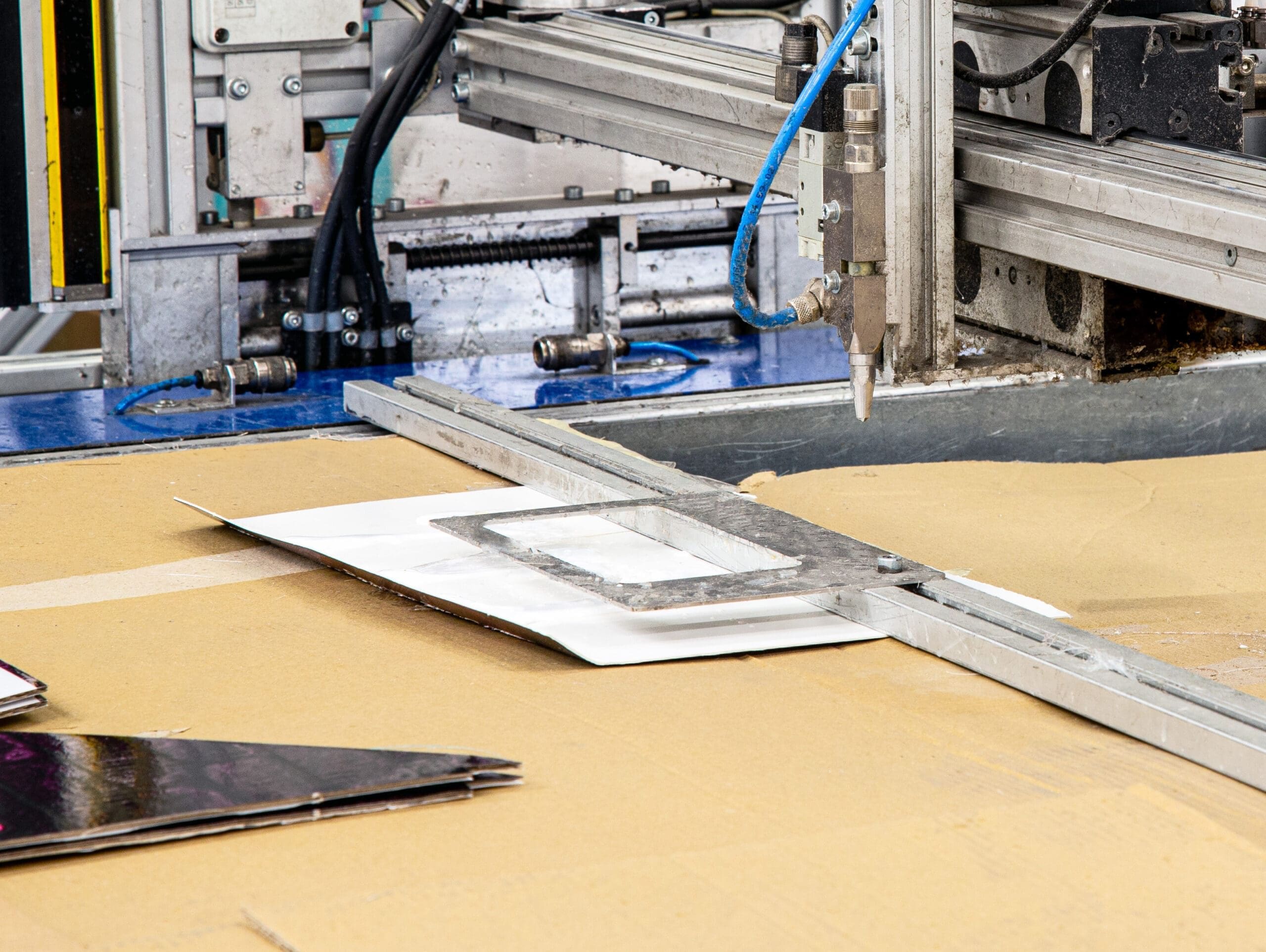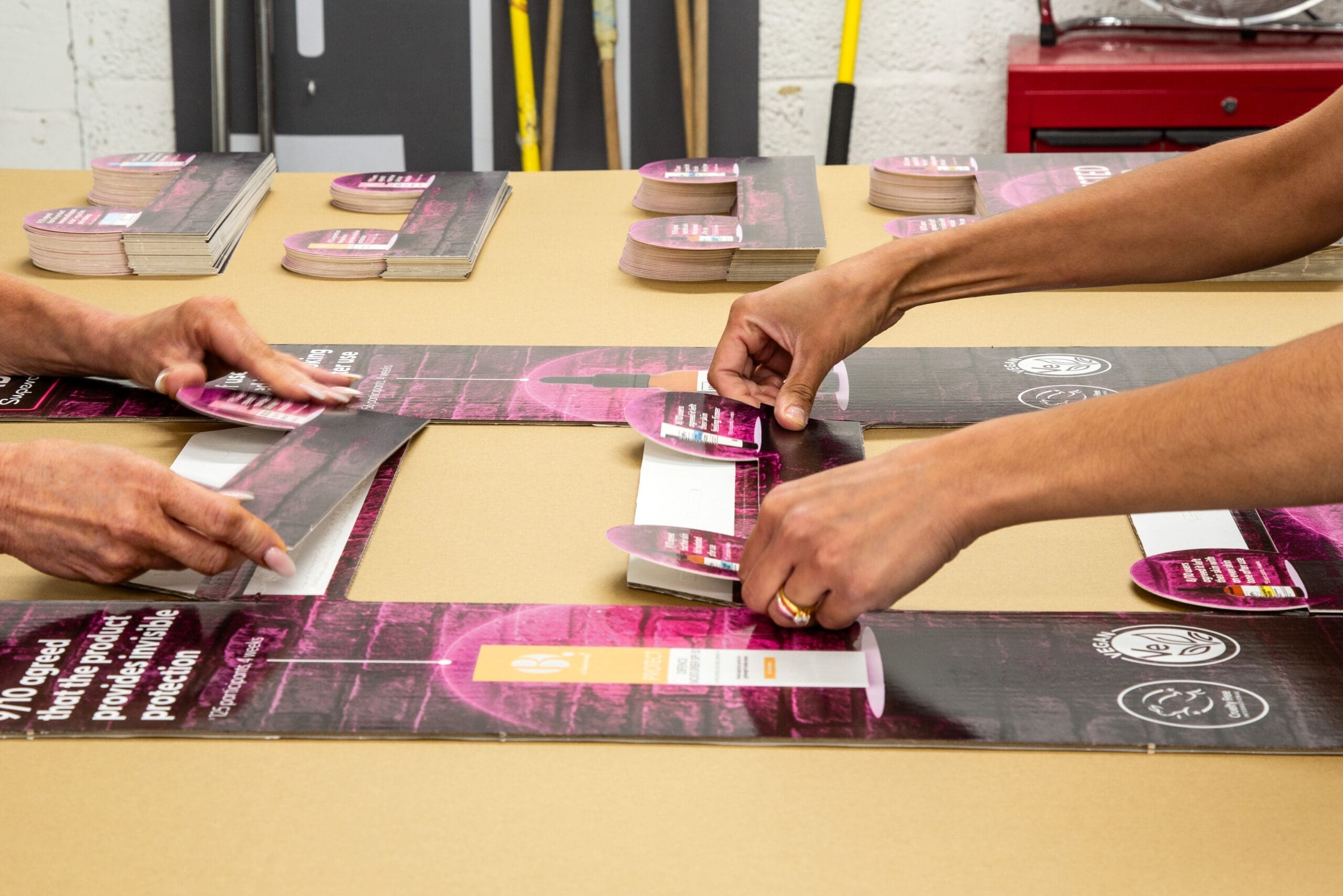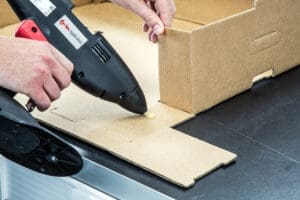Bulk Adhesives, Big Results: The ideal precision bonding solution for digital cutters
Digital cutters offer unparalleled precision, flexibility and efficiency for converters, and can work with a wider range of materials than some traditional die cutting methods. However, adhesive selection remains a critical challenge. Choosing the wrong adhesive can lead to production slowdowns, poor bonding and unnecessary material waste.
At Power Adhesives, we are proud to offer the solution to this problem. Our range of bulk hot melt adhesives ensures converters can access the right adhesive for their requirements, helping them optimise their processes and make the most of their digital cutting technology.
Adhesive selection matters
When it comes to choosing the right adhesive for digital cutting, converters face several challenges:
Material compatibility
Digital cutters often work with a diverse range of substrates, from cardboard and corrugated board to heat sensitive substrates like foam or expanded polystyrene. Adhesives need to bond effectively with these materials, which may differ markedly in terms of surface energy, flexibility or thickness, and the wrong adhesive can result in weak bonds or damage to the material.
Adhesive performance
Ensuring strong adhesion while maintaining flexibility is critical, particularly for high-flex substrates like shrink films and squeeze tubes. Issues such as ink cracking or adhesive failure on these materials may require specialised adhesives. Additionally, environmental factors such as temperature and humidity can significantly impact adhesive performance. For instance, adhesives may fail to bond effectively in cold storage conditions or may degrade under high humidity.
Sustainability requirements
Many converters face growing pressure to use eco-conscious adhesives that support recyclability, reduce VOC emissions and help to minimise waste. This can add additional complexity in adhesive selection, as performance must be balanced against sustainability targets.
Production efficiency
Adhesives need to cure quickly to maintain the high production speeds used by digital cutters. Adhesives that take too long to set can slow down production lines, while those that set too quickly may not allow for proper alignment or repositioning.
Bulk hot melt adhesives are the ideal solution
Addressing these concerns requires close collaboration between adhesive manufacturers, equipment suppliers and end users to develop tailored solutions that meet technical and operational demands.
Our bulk hot melt adhesives are specifically designed to address these challenges, making them the ideal precision bonding solution for packaging converters using digital cutters. These adhesives offer unmatched versatility, bonding effectively with a wide range of substrates, including both porous and non-porous materials. Whether you’re working with corrugated board or delicate foam, Power Adhesives has a formulation tailored to your needs.
With a wide selection of bio-based and biodegradable solutions, Power Adhesives’ packaging hot melts enhance packaging and print operations, offering high efficiency, secure bonds and fast setting speeds. This allows converters to maintain high production speeds without sacrificing bond strength or precision.
The thermoplastic nature of these adhesives ensures consistent performance across varying environmental conditions, providing reliable bonds even in extreme temperatures or high-humidity environments. Their 100% solid formulations mean there’s minimal shrinkage during cooling, ensuring optimal coverage with less material. This not only reduces waste but also lowers overall costs.
As a result, the Tecbond bulk adhesives range ensures a suitable solution for every requirement, ensuring converters can access the tools they need to maximise digital cutting equipment.
Strong customer bonds
What truly sets Power Adhesives apart is our commitment to problem-solving and customisation. We understand that no two applications are the same, and work closely with clients to develop tailored solutions. Our technical experts account for common challenges with adhesive selection and can recommend the most suitable adhesive from our extensive range. This ensures that converters can tackle even the most complex projects with confidence.
Our flexible supply model is designed with customer convenience in mind. With variable minimum order quantities (MOQs) and fast order fulfilment, our bulk range ensures that businesses receive exactly what they need when they need it—eliminating the burden of excessive stockholding.
What’s more, with sustainability more important than ever, our bio-based and biodegradable hot melt options enable converters to meet demands for eco-conscious packaging without compromising performance.
With tailored solutions for niche requirements and a commitment to sustainability, our bulk hot melt adhesives empower converters to stay ahead in an increasingly competitive market. By choosing Power Adhesives as your partner in precision bonding solutions, you’re not just investing in superior adhesives—you’re investing in the future of your business.















